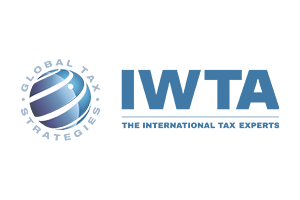
IWTA’s Guide to Key Provisions of the One Big Beautiful Bill Act
IWTA’s Guide to Key Provisions of the One Big Beautiful Bill Act
Contact IWTA
To schedule an introductory phone conference with IWTA founder Jack Brister simply click here. Email IWTA at bloginquiries@iwtas.com Or call the IWTA New York City office at 212-256-1142
Latest Posts
Find Previous Posts
Signed into law in early July, the One, Big Beautiful Bill Act (OBBBA) introduces significant changes to tax law— impacting high-net-worth individuals (HNWIs). From new rules on global income tax (GILTI) to expanded opportunities for Qualified Small Business Stock (QSBS) investments, and much more, understanding and planning for these changes is essential.
Global Tax Burdens Require Careful Planning
- Higher GILTI Tax Rate:The deduction for Global Intangible Low-Taxed Income (GILTI) drops from 50% to 40%, raising the effective U.S. tax rate from approximately 10.5% to about 14%. Offshore profits not fully offset by foreign tax credits now face higher residual U.S. tax, reducing the appeal of low-tax jurisdiction planning.
- Expanded Foreign Tax Credit: The allowable Foreign Tax Credit rises to 90% of deemed paid foreign taxes. While helpful, the built-in “haircut” ensures that some U.S. tax liability remains, requiring careful credit modeling to avoid trapped credits.
- Elimination of QBAI Benefit: The Qualified Business Asset Investment provides an exemption for income generated by tangible assets abroad, distinguishing it from highly mobile intangible income. With the prior 10% deemed return exclusion on tangible foreign assets removed, this change will especially impact capital-intensive offshore operations—manufacturing, infrastructure, real estate—where more earnings are now swept into GILTI.
- New Name and Lower Benefit for FDII: The Foreign-Derived Intangible Income regime is now known as Foreign-Derived Deduction Eligible Income,(FDDI) and its benefit reduced to a 33.34% deduction. For U.S. corporations generating export-related income, the preferential effective rate shrinks, making the U.S. a less favorable hub for export-driven strategies.
Newly-Expanded Qualified Small Business Stock Benefits Demand Strategic Exit Strategies
- Increased Exclusion Limit: The exclusion cap for Qualified Small Business Stock (QSBS) investments rises by 50 percent—from $10 million to $15 million per shareholder—adjusted for inflation beginning in 2027. Investors can now exclude the greater of $15 million or 10 times their basis in the QSBS.
- Shorter Holding Periods for Partial Exclusions: The OBBBA introduces partial exclusions for gains realized after three or four years, rather than the previous five-year minimum. For example:
- 3-year holding period: 50% exclusion
- 4-year holding period: 75% exclusion
- 5+ years: 100% exclusion
- This flexibility allows investors to capitalize on liquidity opportunities without waiting the full five years, while still benefiting from meaningful tax relief. Partial exclusions are subject to the top 28% capital gains rate and the 3.8% Net Investment Income Tax (NIIT) on the non-excluded portion. Advisors should consider strategic timing for QSBS sales and potential reinvestment in new QSBS within 60 days to defer taxable gain.
- Expanded Corporate Eligibility: The Bill raises the gross asset threshold for QSBS-issuing corporations from $50 million to $75 million, indexed for inflation. Combined with provisions for immediate expensing of research and experimental expenditures, these changes allow larger, later-stage startups to qualify as “small businesses,” increasing the universe of investment opportunities for HNWI portfolios.
Permanent Interest Caps Necessitate Careful Real Estate Financing Strategies
- The OBBBA makes permanent the cap on mortgage interest deductions set by the TCJA. Homeowners can only deduct interest on up to $750,000 of home loans ($375,000 if married filing separately), and this limit applies to mortgages used to buy or improve a main home or one additional home, like a vacation property.
- Home equity loan interest can only be deducted if the funds are used to improve or buy a primary or second home. Even then, the total mortgage plus home equity debt that qualifies is still capped at $750,000/$375,000.
- The OBBBA temporarily raises the SALT deduction cap from $10,000 to $40,000 ($20,000 if married filing separately). This higher limit applies from 2025 to 2029, with small yearly increases starting in 2026. In 2030, the deduction cap returns to $10,000 unless new laws extend the expansion.
Holistic Tax Planning to Drive Better Outcomes for High-Net-Worth Clients
The OBBBA highlights the need for careful tax planning for high-net-worth clients. Those in high-tax states should act now to benefit from expanded SALT deductions before limits revert, while clients with multiple properties or large mortgages need help optimizing their home mortgage and equity loan deductions. Internationally, higher GILTI rates and reduced tax incentives require close review of cross-border structures. Meanwhile, enhanced benefits for qualified small business investments create new opportunities to grow wealth through private equity.
By leveraging these permanent and enhanced provisions, advisors can help clients preserve, grow, and strategically deploy wealth in a tax-efficient manner. Jack Brister and his capable team know U.S. and international tax statutes inside and out. We’re here for a consultation, an evaluation, and to serve as a trusted advisor and accounting partner. Whether you call Detroit, Dublin or Dubai your home, if you have investments, business, family or residences in the U.S., we can help.





















